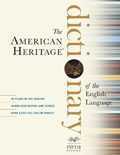Origin of our
Middle English ure from Old English ure, earlier user, genitive of us (see us), akin to German unserAn example of our is the house of a couple.
MLA Style
APA Style
our

MLA Style
APA Style
our

adjective
The possessive form of weOrigin of our
Middle English from Old English ūre ; see nes-2 in Indo-European roots.
MLA Style
APA Style

(possessive pronoun)
From Middle English oure, from Old English Å«re, Å«ser (“our"), from Proto-Germanic *unseraz (“of us, our"), from Proto-Indo-European *no-s-ero- (“our"). Cognate with West Frisian ús (“our"), Low German uns (“our"), Dutch onze (“our"), German unser (“our"), Danish vor (“our").
MLA Style
APA Style


